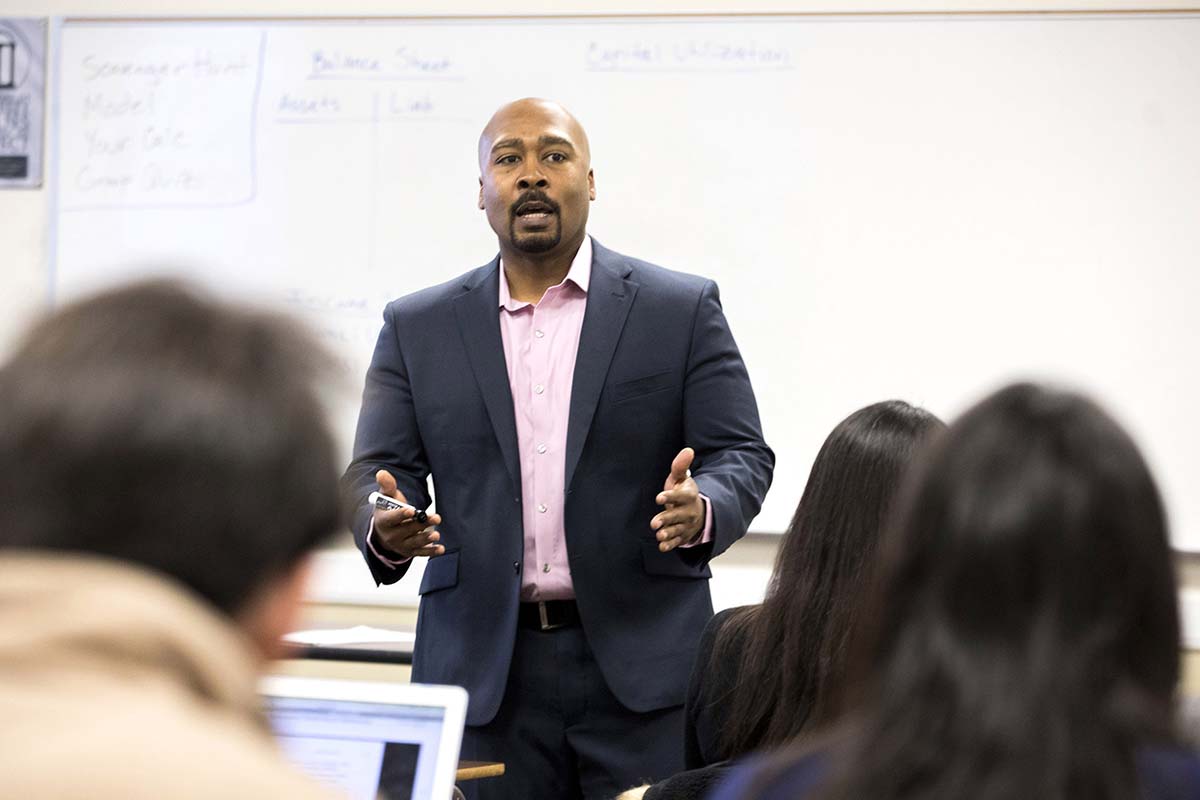Money is an important subject, but it’s also a complicated one, especially for young adults. Figuring out how to manage money and prepare for future finances can cause college students stress and anxiety, impacting their well-being and their ability to do well in school.
But a new study from the University of Georgia suggests that families who talk more about money can help their children weather these storms.
“Money is a taboo topic in society,” said Kenneth White, an assistant professor in financial planning, housing and consumer economics at the College of Family and Consumer Sciences. “But open dialogue and transparency can really help with the financial socialization of children. That’s the best way they can learn.”
White led the study with a team of researchers including Kimberly Watkins from the University of Alabama, Bertranna Muruthi from the University of Oregon, Megan McCoy from Kansas State University and Jamie Lynn Byram from Virginia Tech. The group examined data collected by the 2014 National Student Financial Wellness Survey, which included responses from more than 14,000 students at 52 colleges and universities across the country. Survey questions explored a range of topics including family dynamics, debt and socioeconomic stress.
Students who are feeling financial stress tend to also have some shock to their academic achievement. So alleviating that stress can help with their academic success.” — Kenneth White
The study found that across the board, students whose families talked openly about money—specifically investing—reported feeling less stress and higher optimism when it came to money management and their future finances.
“It’s apparent that students who had those conversations had better financial outcomes,” White said.
Financial stress refers to anxiety or worry about having enough money to pay bills, participate in activities with friends and peers, and meet basic needs and wants. And it can be debilitating, especially for college students facing student debt and applying for jobs after graduation.
“Students who are feeling financial stress tend to also have some shock to their academic achievement,” White said. “So alleviating that stress can help with their academic success. That’s why it’s so important that parents talk to their kids about money. Getting those messages at home is the most impactful.”
The study also revealed a link between race and the types of financial conversations students reported having with their parents. For example, African American students reported receiving significantly fewer messages about saving and banking, while Hispanic students received fewer messages about investing when compared with other racial/ethnic groups. For White, this finding provides key insight on how families and schools can approach conversations about money.
“It’s important to understand the different historical traumas and experiences racial and ethnic groups have with financial institutions, wealth disparities and employment opportunities in the United States. Some groups may not have the same options for investing and saving for the long term as others,” he said.
Money management resources
Financial coaches and advisors can be valuable resources for families looking to start these conversations and learn more about money management. Other organizations, such as the Council for Economic Education, also provide financial literacy tools and curriculum for students.
While conversations between parents and children are some of the most influential, White argues that schools and other organizations have an opportunity—even an obligation—to share informed messages about money.
“Schools can be a big influence, but in order to do that, they have to have more teachers and educators comfortable with financial literacy to promote those kinds of conversations.”
Many schools require or recommend students take a financial literacy course. But for White, standardization is key.
“Having an educational policy in place where students must take a stand-alone personal finance course in order to graduate from high school would go a long way in encouraging those financial conversations at home.”


